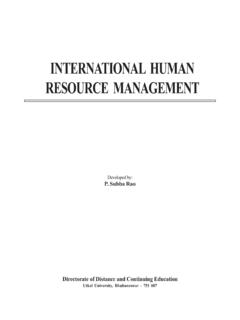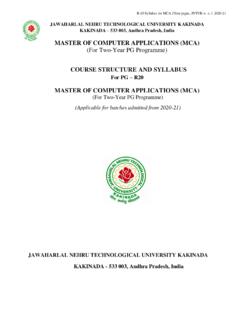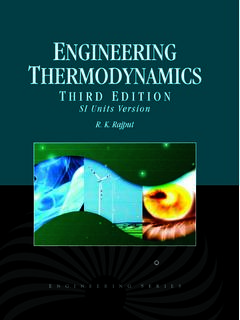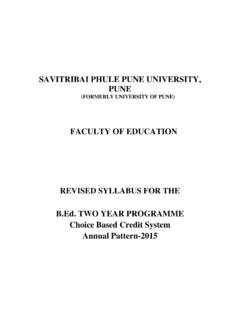Transcription of UNIVERSITY OF MUMBAI - Vidyalankar Classes
1 AC: 29/06/2021 Item No: UNIVERSITY OF MUMBAI Bachelor of Engineering in Computer Engineering Second Year with Effect from AY 2020-21 Third Year with Effect from AY 2021-22 Final Year with Effect from AY 2022-23 (REV- 2019 C Scheme) from Academic Year 2019 20 Under FACULTY OF SCIENCE & TECHNOLOGY (As per AICTE guidelines with effect from the academic year 2019 2020) Sr. No. Heading Particulars 1 Title of the Course Third Year Engineering ( Computer Engineering) 2 Eligibility for Admission After Passing Second Year Engineering as per the Ordinance 3 Passing Marks 40% 4 Ordinances / Regulations ( if any) Ordinance 5 No.
2 Of Years / Semesters 8 semesters 6 Level / Diploma / Certificate (Strike out which is not applicable) 7 Pattern Yearly / Semester (Strike out which is not applicable ) 8 Status New / Revised (Strike out which is not applicable ) 9 To be implemented from Academic Year With effect from Academic Year: 2021-2022 Dr. S. K. Ukarande Dr Anuradha Muzumdar Associate Dean Dean Faculty of Science and Technology Faculty of Science and Technology UNIVERSITY of MUMBAI UNIVERSITY of MUMBAI AC: 29/06/2021 Item No: UNIVERSITY OF MUMBAI Preamble To meet the challenge of ensuring excellence in engineering education, the issue of quality needs to be addressed, debated and taken forward in a systematic manner. Accreditation is the principal means of quality assurance in higher education.
3 The major emphasis of accreditation process is to measure the outcomes of the program that is being accredited. In line with this Faculty of Science and Technology (in particular Engineering) of UNIVERSITY of MUMBAI has taken a lead in incorporating philosophy of outcome based education in the process of curriculum development. Faculty resolved that course objectives and course outcomes are to be clearly defined for each course, so that all faculty members in affiliated institutes understand the depth and approach of course to be taught, which will enhance learner s learning process. Choice based Credit and grading system enables a much-required shift in focus from teacher-centric to learner-centric education since the workload estimated is based on the investment of time in learning and not in teaching.
4 It also focuses on continuous evaluation which will enhance the quality of education. Credit assignment for courses is based on 15 weeks teaching learning process, however content of courses is to be taught in 13 weeks and remaining 2 weeks to be utilized for revision, guest lectures, coverage of content beyond syllabus etc. There was a concern that the earlier revised curriculum more focused on providing information and knowledge across various domains of the said program, which led to heavily loading of students in terms of direct contact hours. In this regard, faculty of science and technology resolved that to minimize the burden of contact hours, total credits of entire program will be of 170, wherein focus is not only on providing knowledge but also on building skills, attitude and self learning.
5 Therefore in the present curriculum skill based laboratories and mini projects are made mandatory across all disciplines of engineering in second and third year of programs, which will definitely facilitate self learning of students. The overall credits and approach of curriculum proposed in the present revision is in line with AICTE model curriculum. The present curriculum will be implemented for Second Year of Engineering from the academic year 2021-22. Subsequently this will be carried forward for Third Year and Final Year Engineering in the academic years 2022-23, 2023-24, respectively. Dr. S. K. Ukarande Dr Anuradha Muzumdar Associate Dean Dean Faculty of Science and Technology Faculty of Science and Technology UNIVERSITY of MUMBAI UNIVERSITY of MUMBAI ncorporation and Implementation of Online Contents from NPTEL/ Swayam Platform The curriculum revision is mainly focused on knowledge component, skill based activities and project based activities.
6 Self learning opportunities are provided to learners. In the revision process this time in particular Revised syllabus of C scheme wherever possible additional resource links of platforms such as NPTEL, Swayam are appropriately provided. In an earlier revision of curriculum in the year 2012 and 2016 in Revised scheme A' and B' respectively, efforts were made to use online contents more appropriately as additional learning materials to enhance learning of students. In the current revision based on the recommendation of AICTE model curriculum overall credits are reduced to 171, to provide opportunity of self learning to learner. Learners are now getting sufficient time for self learning either through online courses or additional projects for enhancing their knowledge and skill sets.
7 The Principals/ HoD s/ Faculties of all the institute are required to motivate and encourage learners to use additional online resources available on platforms such as NPTEL/ Swayam. Learners can be advised to take up online courses, on successful completion they are required to submit certification for the same. This will definitely help learners to facilitate their enhanced learning based on their interest. Dr. S. K. Ukarande Dr Anuradha Muzumdar Associate Dean Dean Faculty of Science and Technology Faculty of Science and Technology UNIVERSITY of MUMBAI UNIVERSITY of MUMBAI Preface by Board of Studies in Computer Engineering Dear Students and Teachers, we, the members of Board of Studies Computer Engineering, are very happy to present Third Year Computer Engineering syllabus effective from the Academic Year 2021-22 (REV-2019 C Scheme).
8 We are sure you will find this syllabus interesting, challenging, fulfill certain needs and expectations. Computer Engineering is one of the most sought-after courses amongst engineering students. The syllabus needs revision in terms of preparing the student for the professional scenario relevant and suitable to cater the needs of industry in present day context. The syllabus focuses on providing a sound theoretical background as well as good practical exposure to students in the relevant areas. It is intended to provide a modern, industry-oriented education in Computer Engineering. It aims at producing trained professionals who can successfully acquainted with the demands of the industry worldwide. They obtain skills and experience in up-to-date the knowledge to analysis, design, implementation, validation, and documentation of computer software and systems.
9 The revised syllabus is finalized through a brain storming session attended by Heads of Departments or senior faculty from the Department of Computer Engineering of the affiliated Institutes of the MUMBAI UNIVERSITY . The syllabus falls in line with the objectives of affiliating UNIVERSITY , AICTE, UGC, and various accreditation agencies by keeping an eye on the technological developments, innovations, and industry requirements. The salient features of the revised syllabus are: 1. Reduction in credits to 170 is implemented to ensure that students have more time for extracurricular activities, innovations, and research. 2. The department Optional Courses will provide the relevant specialization within the branch to a student. 3. Introduction of Skill Based Lab and Mini Project to showcase their talent by doing innovative projects that strengthen their profile and increases the chance of employability.
10 4. Students are encouraged to take up part of course through MOOCs platform SWAYAM We would like to place on record our gratefulness to the faculty, students, industry experts and stakeholders for having helped us in the formulation of this syllabus . Board of Studies in Computer Engineering Prof. Sunil Bhirud : Chairman Prof. Sunita Patil : Member Prof. Leena Raga : Member Prof. Subhash Shinde : Member Prof. Meera Narvekar : Member Prof. Suprtim Biswas : Member Prof. Sudhir Sawarkar : Member Prof. Dayanand Ingle : Member Prof. Satish Ket : Member Program Structure for Third Year Computer Engineering UNIVERSITY OF MUMBAI (With Effect from 2021-2022) Semester VI Course Code Course Name Teaching Scheme (Contact Hours) Credits Assigned Theory Pract. Tut. Theory Pract. Total CSC601 System Programming & Compiler Construction 3 -- 3 -- 3 CSC602 Cryptography & System Security 3 -- 3 3 CSC603 Mobile Computing 3 -- 3 -- 3 CSC604 Artificial Intelligence 3 -- 3 -- 3 CSDLO601x Department Level Optional Course -2 3 -- 3 -- 3 CSL601 System Programming & Compiler Construction Lab -- 2 -- 1 1 CSL602 Cryptography & System Security Lab -- 2 -- 1 1 CSL603 Mobile Computing Lab -- 2 -- 1 1 CSL604 Artificial Intelligence Lab -- 2 -- 1 1 CSL605 Skill base Lab Course: Cloud Computing -- 4 -- 2 2 CSM601 Mini Project Lab: 2B -- 4$ -- 2 2 Total 15 16 15 08 23 Course Code Course Name Examination Scheme Theory Term Work Pract.










